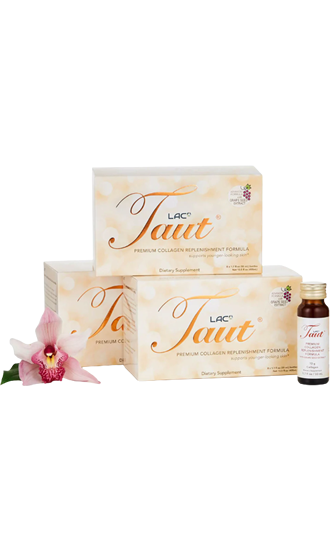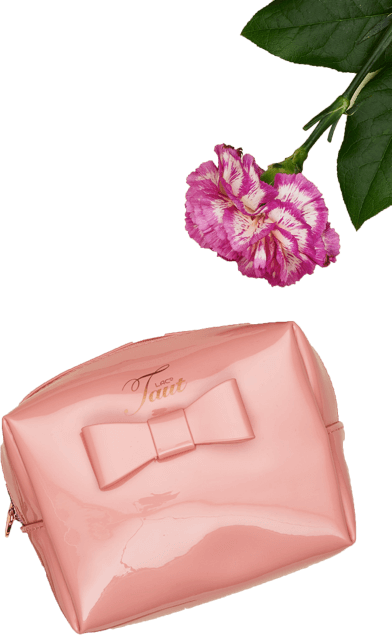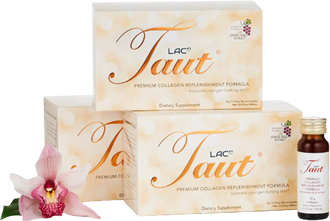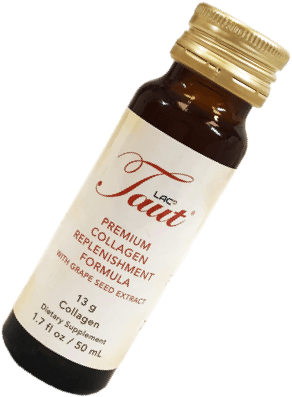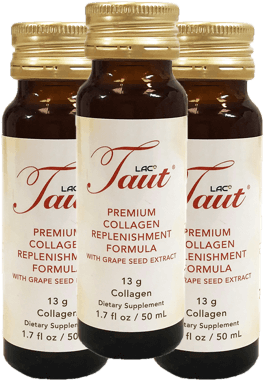What Are Free Radicals in the Body? (Free Radical Definition)

Every day, we are exposed to toxins in our environments and our diets that could be causing some serious damage to our skin.
Free radicals are invisible molecules that wreak havoc on our bodies, causing chemical reactions that impact both our physical health and the appearance of our skin. Once you hear about the role that free radical-induced oxidative stress plays in aging, you'll want to update your skincare routine, stat.
Luckily, by learning about how free radicals form and what they do, we can learn how to minimize their impact. Thank you, science!
In this article, we will go through some helpful solutions that can reduce the risks associated with free radicals, helping you remain healthier and stronger, with youthful, glowing, taut skin.
What Are Free Radicals?
To explain free radicals, we need to get technical for a minute and remember some high school chemistry. So, let's talk about atoms, electrons, and molecules!
Every atom has a set of electrons that orbit its core, and these electrons make up the atom's outer shell. This shell needs to be full of electrons to be stable. If the shell is not full and it contains an unpaired electron, the atom is unstable and it may bond to another atom, using the other atom's electrons to fill out its own shell.
When two atoms bond they become a molecule. Atoms or molecules with an imbalanced (uneven) number of electrons are free radicals are unstable. They are highly reactive and potentially dangerous because they are quick to bond with other molecules in the body in an attempt to match their unpaired electrons, which can cause a chain reaction of 'electron stealing' that becomes harmful to your health over time.
The good news is that free radicals can be neutralized by antioxidants, which are molecules that can donate electrons to free radicals in order to stabilize them, reducing their reactivity within the body.
The Impact of Free Radical Damage
So how exactly do free radicals harm your health, and are they all bad news? Let's take a look:
Reactive Oxygen Species & Oxidative Stress
Free radicals are most commonly formed with oxygen molecules, becoming what's known as reactive oxygen species. The chain reactions that these oxygen free radicals cause in the body are called oxidation. Oxidation is a natural process that has a function in the body, but it is only positive at low levels.
The negative impacts come when free radicals outnumber antioxidants in the body, and a chain reaction of continued oxidative stress occurs. 1
Your body might go through short-term oxidative stress in response to illness or injury, as your immune system produces enzymes (such as xanthine oxidase) that fight pathogens but also generate free radicals. This is natural and not typically harmful in the long term.
However, when oxidative stress continues over extended periods of time, the process can damage fatty tissue, proteins, cell membranes, nucleic acids, and DNA – which can have big impacts on human health.
Long term oxidative stress is associated with human disease, playing a role in the development of the following conditions:
- Cancer – The cellular damage caused by free radicals can play a role in cancer development through the formation of abnormal cells, which can become cancer cells. 2, 3
- Neurodegenerative diseases (neurological diseases) such as Alzheimer's disease, Parkinson's disease, and dementia.
- Inflammatory diseases such as arthritis and liver disease.
- Diabetes
- High blood pressure
- Cardiovascular disease
Premature Aging
Aside from the scary effects on our health and wellbeing, oxidative stress also plays a big part in how fast our skin ages. The free radical theory of aging developed in 1956 cites aging to be a direct function of oxidative stress breaking down cells over time. 4
Because free radicals attack your cells and cause them to degenerate faster, this also affects your skin cells and the quality of your skin over time.
Free radicals attack proteins throughout the body, including elastin and collagen, contributing to skin aging. Collagen is the most abundant protein in the body, and it makes up about 80% of your dermis (foundational layer of the skin). Collagen is responsible for the thickness and strength of your skin. Elastin is the second most important element in your skin, responsible for its elasticity.
When collagen and elastin fibers are weakened by free radical damage, your skin loses strength and elasticity and this will inevitably cause wrinkles.
This damage also impacts your hair, leading to grays and thinning. 5
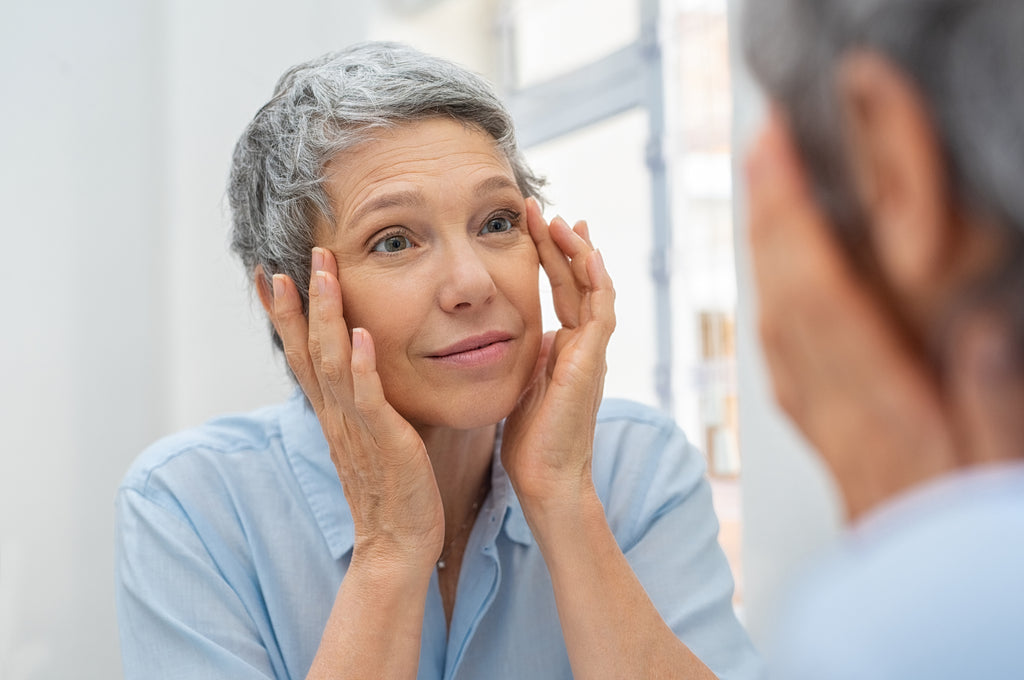
Where Do Free Radicals Come From?
So now that we know what free radicals are, you're probably wondering how they are formed and how you can avoid them! These unstable molecules are formed naturally by the body, but some lifestyle factors and environmental conditions accelerate free radical formation. Let's take a closer look:
Normal Metabolic Processes
Normal metabolism is one of the main chemical processes in the body that enables free radical formation, and in this case, it's not necessarily a bad thing.
Our bodies make energy by breaking glucose down into water and carbon dioxide. In this process, electrons can occasionally escape from the glucose molecules and form free radicals (e.g. superoxide or hydrogen peroxide).
So there's no avoiding it, the body naturally produces free radicals daily. However, the body also typically produces enough detoxifying enzymes and antioxidants to neutralize those unstable molecules.
Poor Diet
What we eat and drink can have a big impact on the production of free radicals in the body, and poor nutrition can greatly increase the amount of oxidative stress we go through.
A diet high in sugar can cause oxidative stress and inflammation through a process called glycation. When we consume a lot of sugar, whether it's through candy, soda, or refined carbohydrates, the glucose attaches to proteins in your bloodstream and produces dangerous free radicals called advanced glycation end-products (AGEs). These AGE free radicals attach to collagen and elastin throughout the body, weakening the skin and accelerating the formation of wrinkles. They are also harmful to overall health, contributing to heart disease and diabetes. 6
Similarly, a diet high in fat, particularly fried food, will create free radicals in the body. The polyunsaturated fat found benefits-recipe in the vegetable oils we typically use for frying oxidizes in the body easily, which helps create free radicals and promotes oxidative stress.
Lastly, consuming alcohol in excess will also lead to more free radicals in the body. This is because alcohol is technically a toxin, and our livers release certain enzymes to process it which unfortunately also enables free radical damage.
Smoking
There are over 4000 chemicals in tobacco smoke, many of which greatly accelerate free radical production.
When you smoke a cigarette, oxidative stress occurs, damaging cells and leading to the formation of abnormal cells, eventually increasing your risk of lung cancer. This process of oxidative stress also greatly speeds up the skin aging process, weakening your collagen and elastin fibers to breaking point, enabling the skin to sag and wrinkle.
This explains why people who smoke will look years older than their non-smoking counterparts. In fact, a 2007 study by various academic research institutions measured the skin quality of identical twins, with one who smoked cigarettes and one who did not. The twin who smoked, unsurprisingly, had much more severe signs of aging on his skin due to the loss of collagen and elastin. 7
Sun Damage
UV radiation is a big factor in the production of free radicals and the degeneration of the skin by oxidative stress. In fact, sun damage contributes up to 80% of free radical generation in the body by external forces. 8
UV rays penetrate deep into the skin's layers, activating enzymes that produce free radicals that cause damage to your collagen and elastin supplies. This is why sun-damaged skin is likely to wrinkle and form age spots more quickly than skin that has been protected from UV rays.
Pollution & Chemical Toxins
Toxins in our environment can greatly contribute to the production of free radicals in our systems. Air pollutants from smog, metal ions, and radiation can generate free radicals that exist in our daily environments, which we then inhale.
Chemicals like pesticides used in food farming practices also impact our free radical intake, which is why organic, non-GMO foods can be better for our health in the long term.
Many of these free radical-producing chemicals are also carcinogens, meaning that they can increase the risk of lung cancer, breast cancer, and others by interacting with cell DNA and enabling cancer cells to develop.
Stress
Mental stress can lead to oxidative stress and inflammation throughout the body thanks to cortisol. Cortisol is the hormone that our bodies release in reaction to stress, fear, or anxiety, which boosts adrenaline and enables us to make fight-or-flight decisions under pressure.
Unfortunately, cortisol also generates free radicals, causing oxidative stress that can causes diseases as well as premature aging of the skin.
Excessive Exercise
Although a regular exercise routine is extremely beneficial to your health while also being good for your mind, excessive exercise to the point of repetitive strains and injuries can exacerbate free radical formation and cause more harm than good.
When our bodies need to repair tissue injury, it creates an inflammatory immune response that generates free radicals. While this is helpful for repairing tissue and getting you back to feeling fighting fit, it can also lead to an excess of free radicals in the body.

Free Radicals and Antioxidants
Luckily, it's not all bad news for your health and your skin! Obtaining the right balance of free radicals and antioxidants can help you to keep your body fighting fit.
Unlike other molecules, antioxidants have the power to donate electrons from their outer shell without becoming unstable. This means that antioxidants can actually donate electrons to match the unpaired electrons in free radicals, stabilizing them and reducing their reactivity.
Examples of antioxidants include glutathione, beta carotene, vitamin C, vitamin E, and phytoestrogens (plant compounds). Each of these antioxidants has beneficial effects on the body, staving off free radicals and helping to protect your body's essential proteins, lipids, cell membranes, and DNA.
Let's take a look at the best ways to incorporate these free radical scavengers into your daily routine:
Diet
There are a huge number of dietary sources of antioxidants, which you can easily incorporate into all of your meals.
The following foods are especially high in antioxidant vitamins:
- Berries – blueberries, strawberries, and goji berries are high on the superfoods lists thanks to their high antioxidant content
- Citrus fruits like lemons, oranges, and limes are rich in vitamin C which is a potent antioxidant and an important cofactor for collagen production
- Carrots and sweet potatoes – these orange veggies are rich in beta carotene, a type of vitamin A that has huge benefits for your skin
- Dark leafy greens like kale, spinach, and swiss chard are rich in vitamin C, K, and A.
- Soy - soy is rich in phytoestrogens, which have antioxidant as well as collagen-boosting properties
- Green tea – green tea is rich in flavonoids, particularly EGCG, which help protect your cells against free radical damage
- Dark chocolate has a high antioxidant content that can help reduce inflammation, which is good news for chocoholics!
Not all antioxidants are the same, and they each have different chemical properties. That's why it's so important to include a wide variety of these foods in your diet. A diet rich in colorful fruits and veggies is the perfect place to start!

Supplements
Although the most important thing is to maintain a healthy diet packed with fruit and veggies, antioxidant supplements can also help to boost your defenses against free radicals.
French Pine Bark is an example of a potent antioxidant typically available in supplement form, that strengthens your vascular system and enhances maximum blood flow and waste removal throughout your body.
Masquelier's French Pine Bark Extract is packed with OPCs (Oligomeric Proanthocyanidins) that neutralize free radicals and combat toxins throughout the body. Tests have shown Masquelier's OPCs to be significantly more powerful than vitamin E and 20 times more powerful than vitamin C as an antioxidant!
By building antioxidant defenses against free radicals, this supplement helps to strengthen blood vessels, boost circulation, improve eye health, and strengthen your immune system. It also protects your collagen and elastin from harm, enabling your skin to stay smoother, stronger, and more flexible for longer.
A daily dose of Masquelier's unique formula can have powerful anti-aging, antibacterial, antiviral, anti-inflammatory, anti-carcinogenic, and anti-allergic effects for your whole body.
Disclaimer: Antioxidant supplementation is not right for everyone, and you may not be an ideal candidate if you have been diagnosed with cancer. Some studies on breast cancer patients have found that antioxidant supplements can have an adverse effect, as they may actually protect the cancer cells that your body needs to get rid of. This is not specific to breast cancer, as another study found that vitamin E antioxidant supplements in lung cancer patients also had adverse effects. 9, 10
However, if you are otherwise healthy and looking for a solution to fight free radicals, boost your circulation, and strengthen your skin – an antioxidant supplement could help!
Skincare Products
In understanding free radicals, antioxidants, and the aging process, skin care has come a long way in developing formulas that protect your skin against the premature aging associated with oxidative stress. Antioxidants in the best skin care products can help fight the signs of aging, especially when combined with ingredients that speed up cell renewal and promote collagen production.
Taut Collagen Mask is a sheet mask designed with exactly this in mind. It works to combat skin aging by infusing your skin with plumping collagen peptides and hyaluronic acid. These ingredients work together to smooth out fine lines and wrinkles, giving your skin a gorgeous glow.
Each mask is also packed with an antioxidant hit of vitamin C and squalene (derived from olives), which help neutralize free radicals and support the production of new collagen in the skin. Squalene has powerful antioxidant properties that can help hydrate and soften skin, lessen the appearance of fine lines and wrinkles, and prevent UV damage, and minimize the formation of age spots.
These ingredients work synergistically to tone, hydrate, and brighten your skin in just 15 to 20 minutes. So relax, put your feet up, and let it get to work!
Keep Your Skin & Body Fighting Fit With Taut
If you want to maximize your skin's defenses against free radicals, we recommend our Anti Oxy Foxy transformation program. This program combines Taut Liquid Collagen with Masquelier's French Pine Bark Extract, giving you a three-week supply of skin-rejuvenating supplements.
The hero of this bundle is our Taut Liquid Collagen, which is an anti-aging supplement packed with a high potency of hydrolyzed marine collagen peptides, designed to trigger collagen production throughout the body and promote healthier, more youthful-looking skin.
We know that free radicals are one of the biggest threats to our body's collagen and the overall health of our skin, which is why we've added powerful antioxidants like grape seed extract and vitamin C into this skin-loving formula. Grape seed extract contains proanthocyanidins and catechins, two types of antioxidants that are considered to be more powerful than vitamin E or vitamin C.
Our formula also contains salmon DNA, which plays an important role in regenerating skin cells and increasing collagen and elastin in the skin – two essential roles if you want to combat free radical damage!
Together with our French Pine Bark supplement, Taut Liquid Collagen can help restore and rejuvenate your skin, stave off free radicals, and protect your complexion against future damage.
Ready to try one of our Transformation Programs for yourself? Contact our team today, or explore our skin care subscription options!
References:
- Oxidative Stress: Harms and Benefits for Human Health
- Antioxidants and Cancer Prevention
- Role of oxygen free radicals in cancer development
- Oxidative damage to collagen
- Oxidative Stress as a Mechanism of Added Sugar-Induced Cardiovascular Disease
- Smoking and skin aging in identical twins
- Free Radicals and Extrinsic Skin Aging
- Nrf2 Activation Promotes Lung Cancer Metastasis by Inhibiting the Degradation of Bach1


